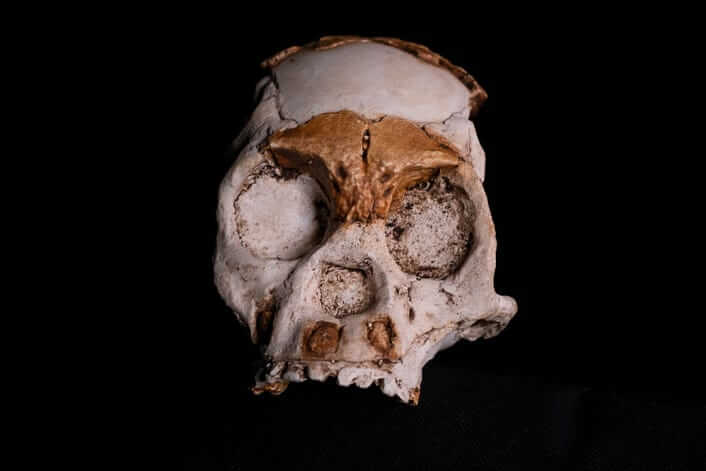SOUTH AFRICA: Scientists Unearth 250,000 Years Old Fossil of a Child

Discovered in Johannesburg, a team of international and South African researchers unearth the fossil bones of an early hominid kid in a cave in South Africa.
The scientists publicised their discovery of a part skull and teeth of a Homo naledi child aged four to six years old who died over 250,000 years ago.
According to the announcement made on Thursday, 4th November, the bones were discovered in an isolated part of the cave, hinting that the remains had been placed there on purpose, possibly as a form of burial.
Homo naledi by definition would refer to an archaic human species discovered 30 miles northwest of Johannesburg in the Rising Star Cave, Cradle of Humankind. Homo naledi existed between 335,000 and 236,000 years ago, with timeline placed in the Middle Pleistocene epoch.
The initial discovery, which was first made public in 2015, consists of 1,550 specimens representing 737 different elements and at least 15 different people.
According to Professor Guy Berger of the University of Witwatersrand in Johannesburg, who led the research and made the revelation on Thursday, he noted that the placement adds intrigue as to how thus many bones got to be in these distant, dark areas of the Rising Star Cave system.
He believes Homo naledi remains one of the most intriguing early human relatives yet discovered. He described them as certainly a primitive species, existing at a time when he thought Africa only had modern humans.
To him, the existence of presence at the time and in this location complicates his understanding of who invented what first in terms of intricate stone tool civilizations and even ritual practices. Two studies in the journal PaleoAnthropology discuss the new discovery.
SOURCE: Associated Press
Abeeb Lekan Sodiq is a Managing Editor & Writer at theafricandream.net. He is as well a Graphics Designer and also known as Arakunrin Lekan.




